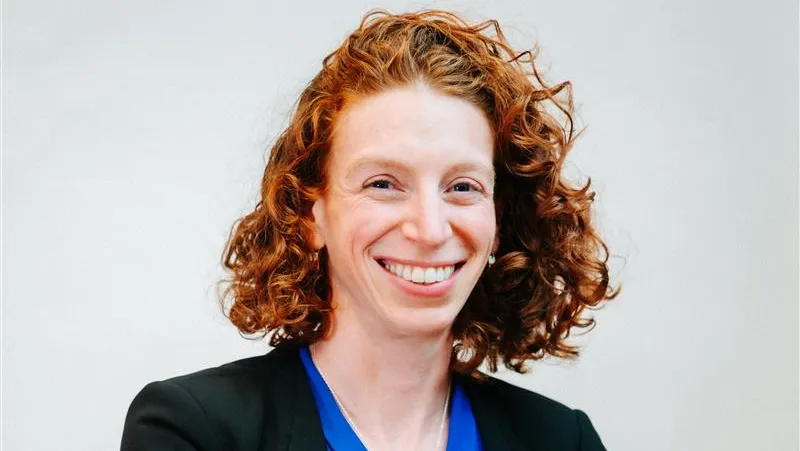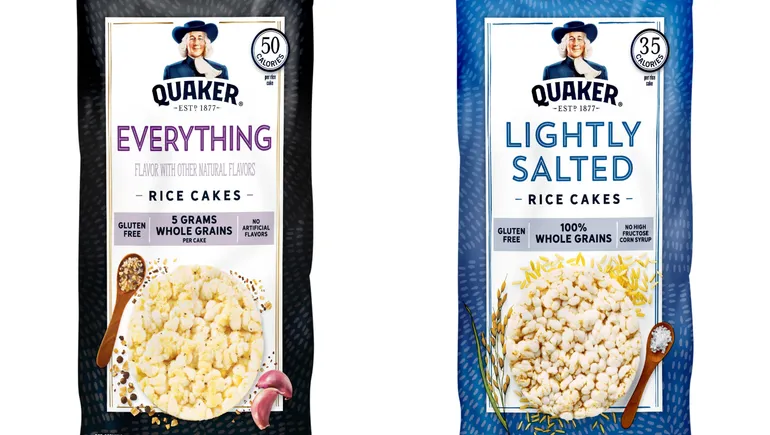Food and beverage giant PepsiCo has carved out a dominating presence in the snacking space with brands such as Doritos, Quaker Oats and Lay’s. But executives with the packaged food company, with more than $90 billion in annual revenue globally, are cognizant that even with its deep resources and decades of experience, there’s still a lot to learn.
As PepsiCo looks for every advantage it can gain in the ultra-competitive food space where consumer tastes are evolving, the New York-based company is looking outside for help. In August, the company assembled its inaugural Culinary Advisory Board.
The panel includes six culinarians. They are: Ali Bouzari, co-founder and chief science officer of Pilot R&D; Andrew Kaplan, host of the Beyond the Plate Podcast and executive vice president of culinary operations at Rachael Ray; Ellen Bennett, founder and chief brand officer of Hedley & Bennett; Eric Adjepong, professional chef, Food Network host; Tiffany Derry, co-founder of T2D Concepts and restaurant owner; and Tyler Malek, co-founder and head ice cream maker at Salt & Straw.
Carolyn Braff, vice president of culinary at PepsiCo Foods, told Food Dive she’s hopeful these chefs, culinary scientists and restaurateurs will provide real-world insight due to their jobs and close ties with the consumer. They will be charged with assisting PepsiCo as it innovates its products, providing a unique perspective on how the public views the company and giving honest feedback on its offerings and strategy that can be hard to come by internally.
PepsiCo said the board will complement its own culinary teams, which includes 10 full-time chefs and more than 150 food scientists and other experts specializing in culinary arts, cooking technologies, baking and pastry, food science and nutrition. The six individuals will work with PepsiCo for at least a year and be financially compensated for their time.
Braff sat down with Food Dive to discuss the program. This interview has been edited for brevity and clarity.
FOOD DIVE: Why did PepsiCo establish the culinary advisory board?
CAROLYN BRAFF: We are definitely famous for snacks today, but we really want to become famous for food. And as we looked around with the tools that we have in our toolbox, we have the humility to realize that we can’t do it alone. The best ideas don’t always come internally, and we haven’t spent time in kitchens. We are not all chefs.
So for us to really think about how we deliver food to consumers and show up for all Americans in the right way, we wanted to bring some really smart minds who bring diverse perspectives, who have been at all stages of that food journey, to help advise us.
The goal of this board is to really bring in some thought partners that can help shape what does the future look like for us, and do it from a perspective that we don’t have internally, to help us really think differently about what the future might look like for PepsiCo Foods and how our brands can continue to show up meaningfully in the lives of consumers.
We wanted to really augment and compliment the skill sets that we have in-house with folks that are doing this every day, kind of out in the field, and together, that’s how we’re going to get much better.
Can you offer details on what skills and insights these six individuals bring to PepsiCo?
BRAFF: Part of it is just the honesty to tell us what we’re doing wrong. Folks who are well embedded within this company sometimes don’t have the ability to take a big step back and ask, ‘How might we do this differently?’ And so these folks, not only are they out in the world kind of using our products every day, both as regular consumers and then in their kitchens, but they also hear what is our reputation like within the industry.
What is our reputation like within chefs, within cooks? What could we be doing better that we don’t actually know about? They help us with blind spots, for sure. The other thing is, while we have credibility within the consumer-packaged goods space, we don’t often have that credibility with other chefs. If I want to go set up a meeting with someone at James Beard Foundation, I’m going to go a lot further in that meeting, bringing [people like we have on our culinary advisory board] with me than if I’m just calling from PepsiCo.

Optional Caption
Permission granted by PepsiCo
And so helping us to open those doors to get that real feedback, and tell it to us straight, that sometimes comes a little bit more easily from someone on the outside, versus asking our own employees, to turn around and tell us what we’re doing wrong.
We’re very clear we can’t do this all by ourselves. If we could, we would have done it by now.
What are you expecting these individuals will bring to PepsiCo’s food products?
BRAFF: We have a couple of really great brands in food, with Quaker being one of them, but for us to really shift our trajectory and say, you know, our past has been in snacks, our future is going to be center plate, real food, sort of every culinary occasion that a consumer might have that we want them to come to us. That’s a real different way of thinking. And so we want to bring in some external folks that will help push us and get us there faster than we would do it internally by ourselves.
We wanted to be real specific with what we’re asking each of the advisors to deliver. So each of the advisors is actually assigned to various brands, and then we’ve got a couple of key questions that we’re asking each of them to help answer for us.
How do we think about moving forward in terms of procurement? And how do we sustainably source the right products and crops to make sure that we’ve got the right ingredients within our system? We’ve asked them to ask some questions there and push us in the right places. How do we tell stories around farmers? We have a really interesting way in which we grow our Lay’s potatoes. What of that does the chef community need to know? And what do broader consumers need to know?
The hope at the end of this year is we’ve gotten some really specific work out of the individual advisors through their brand partnerships, and then as a team, they’re also thinking through that broader narrative of what’s this next step on taking PepsiCo Foods closer to being famous for food.
We’ve got one of our advisors specifically working on the Stacy’s Pita Chip brand. And that is a brand that is woman-owned that has a really interesting founder story, but it’s really, really known as a pita chip. And so the question for that advisor is, hey, help us lay the groundwork for what would a culinary collaboration for Stacy’s look like, that gets Stacy’s out of that pita chip space and more into Mediterranean food. They’re going to come back to us with the kind of the groundwork of a strategy that helps us move Stacy’s pita chips beyond the bag.
PepsiCo doesn’t have a presence in ice cream, but one of your advisors is Tyler Malek, the co-founder and chief creative officer of Salt & Straw, which is known for its unique flavors. How does he fit with your strategy here?
BRAFF: What makes Tyler special is his love of flavor and his understanding of how to take quirky flavors and make them show up in different ways. So he’s actually working on a project with Quaker to think about rice cakes and how rice cake flavors can show up really differently. So that’s a great example of taking someone who was really known in this sweet space and saying, take all of your expertise out of that form of ice cream, and help us really think about flavor, and the way flavor shows up in this form, that’s really different.
Are you hopeful that some ideas that come from the board will show up in new products?
BRAFF: There are a couple of pieces. So product pipeline is certainly one of them. We’d love to make sure that we’ve got some great ideas flowing into that product pipeline. Credibility is another big one for us. So making sure that we are getting the right introductions to the right partners, whether that’s a culinary partnership that we do through a quick service restaurant, through our own partnership, if we’re doing an equity event or a media event, having a seat at the table with these top chefs certainly helps when we make those requests and make those asks.
If we are going to expand our PepsiCo Foods family into a brand new part of the store, and we’ve been working with a chef who is known and famous for that thing, that makes that conversation with that retail partner much, much easier, to have them tell the story of why we are expanding here from a retail perspective, as opposed to us doing it ourselves.







